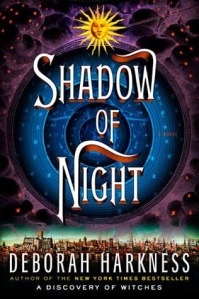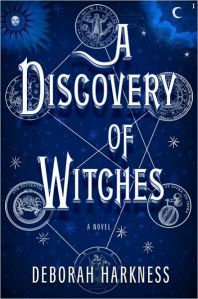 It's surprising who has read the Fifty Shades books, or at least the first one. Me, for instance. And other people I know whom I think of as No Dummies. I remain torn on this issue, kind of liking the out-of-nowhere fan-fiction origins -- the literary equivalent of winning the lottery only with a tad more initiative involved. On the other hand, the fan fiction aspect is slightly annoying; more so is the Old Skool romance, virginal-heroine-must-redeem-the-tortured-dominant-hero theme whose problems are explicated to a far smarter degree than i could ever do in this post from the Rumpus. Not to mention the general annoyingness of the heroine, along with the not-very-inspired writing (many have suggested drinking games based on how many times Anastasia chews her lip -- an action that just makes world-traveling sophisticated billionaire Christian Grey INSANE WITH LUST).
But my primary issue with the success of these books, really, is that there is so much out there in the broad area of the romance genre that is so much better written. I know this is true of many, many bestsellers. Why does Dan Brown sell so much better than writers who are so much better? And I won't even go into the James Patterson Fictional Industrial Complex.
It's surprising who has read the Fifty Shades books, or at least the first one. Me, for instance. And other people I know whom I think of as No Dummies. I remain torn on this issue, kind of liking the out-of-nowhere fan-fiction origins -- the literary equivalent of winning the lottery only with a tad more initiative involved. On the other hand, the fan fiction aspect is slightly annoying; more so is the Old Skool romance, virginal-heroine-must-redeem-the-tortured-dominant-hero theme whose problems are explicated to a far smarter degree than i could ever do in this post from the Rumpus. Not to mention the general annoyingness of the heroine, along with the not-very-inspired writing (many have suggested drinking games based on how many times Anastasia chews her lip -- an action that just makes world-traveling sophisticated billionaire Christian Grey INSANE WITH LUST).
But my primary issue with the success of these books, really, is that there is so much out there in the broad area of the romance genre that is so much better written. I know this is true of many, many bestsellers. Why does Dan Brown sell so much better than writers who are so much better? And I won't even go into the James Patterson Fictional Industrial Complex.
So as alternatives for people who are curious about books written primarily for women and that include differing amounts of nookie -- and because at the Library we are embarking on a Summer Reading program for adults with the theme Between the Covers (with four weekly prize drawings! Prizes from Key West Island Books, the Tropic and Bad Boy Burrito!) -- I am hereby offering my suggested alternatives for books you can read on your ereader ... and not be cringing at the writing. Or the stupidity of the heroine, for that matter.
Most of my trashy romance reading is historical. However if Fifty Shades has you curious about contemporary romances, I can recommend Jennifer Crusie (my favorite of hers is called Bet Me, but they're all pretty good). I like Lisa Kleypas, too; the one that got me hooked is called Smooth Talking Stranger. Kristan Higgins is also very well regarded; I have to admit I haven't actually read her but I saw her at the ALA conference last year and she was charming.
If you're not averse to the vampire thing, many library patrons and some staffers like Charlaine Harris' Sookie Stackhouse books (the basis for the HBO series True Blood though they differ significantly) and Laurell K. Hamilton's Anita Blake Vampire Hunter series (which I haven't read but understand are pretty high on the smut-ometer and pretty gory, too). For supernatural and romance, but not much smut at all, check out Deborah Harkness's All Souls Trilogy, at least the first two installments. The first is called A Discovery of Witches, the second is Shadow of Night. I liked them so much after reading the second that I went and bought the first and wrote a whole blog post just about them.
On historical romances:
Joanna Bourne's spymaster series. The covers are appalling, the books are a lot of fun.
Eloisa James -- in real life she is Mary Bly, a Fordham literature professor ... and daughter of Robert Bly, of Iron John fame. She's also married to an Italian cavaliere (some kind of knight).
Lisa Kleypas again -- I prefer her historicals to her contemporary novels, especially the series about the Hathaway family. Bonus facts: She is a Wellesley grad -- and a former Miss Massachusetts!
Loretta Chase -- many people who read a lot of romance consider Lord of Scoundrels to be the greatest recent historical romance. I like another of hers better. It's called Mr. Impossible -- and it's in that same old Regency time period but set in Egypt.
Julia Quinn -- They're fun, especially the Bridgerton series. I'm still warming up to her latest, about the Smith-Smythes. (Fun fact: Quinn once went on the TV game show The Weakest Link -- and took home $79,000.)
Madeline Hunter -- Another academic -- I saw her at ALA and she said then she was still in the closet as a romance writer and won't tell anyone her real name.
Elizabeth Hoyt -- Another one I saw at ALA who was funny and charming. Her current series is set in the slums of Victorian London. Fairly high on the smut-ometer.
For anyone at all interested in romance as reading, or as a phenomenon or just looking for an entertaining website to read during working hours, I highly recommend Smart Bitches Trashy Books. The reviews are often hysterically funny (including some of old titles from the real bodice-ripping days of the '70s and '80s), and there's lots more, including links to sale titles on Amazon, etc.
Not smutty at all but nice reads that probably did as much as Jane Austen to establish the Regency as THE time setting for historical romance are the works of Georgette Heyer. Once you've read her you can see how much a lot of other historical romance writers are copying her -- then adding smut. Those were the only romance books we had in my house when I was a kid -- my grandmother and mom both read them and eventually, so did I. I love seeing them in the library, in those good old-fashioned buckram covers though I'm also nostalgically fond of the cheesy '70s covers I first knew, like the one illustrating this post. And they're sometimes available at good prices as ebooks. My favorite is The Nonesuch. Another good one is The Tollgate. (Fun fact: ABE Books announced that Heyer is one of their Top Ten all-time sellers: ahead of Charles Dickens, James Patterson and even the mighty J.K. Rowling.)
Need more suggestions? NPR recently had a post on recommended romance reading from Eloisa James that includes some of these authors and some different ones. If it's the kink in the 50 Shades phenomenon that intrigues you, check out the titles mentioned in this recent piece from Time magazine, along with others in their Summer Books series.




